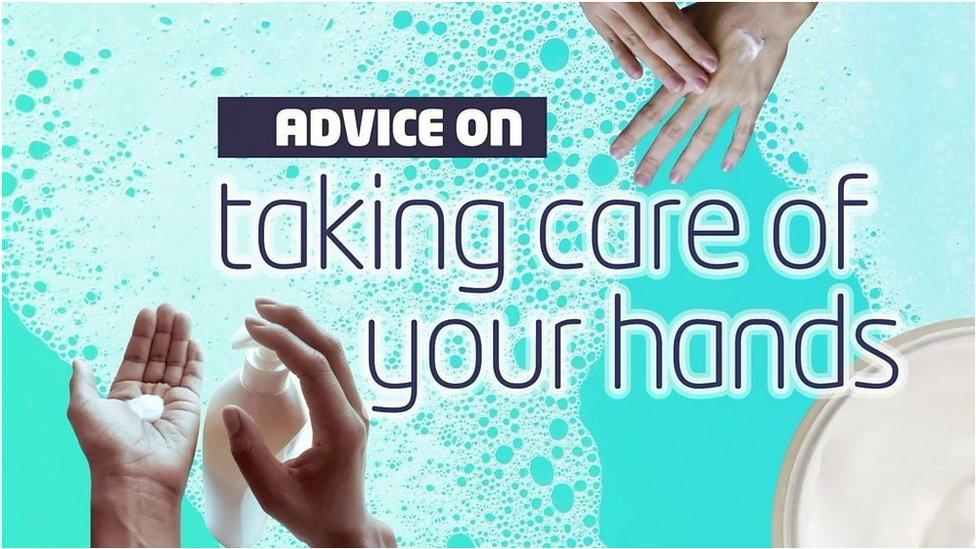Eczema: What is it and how does it affect people?
- Published
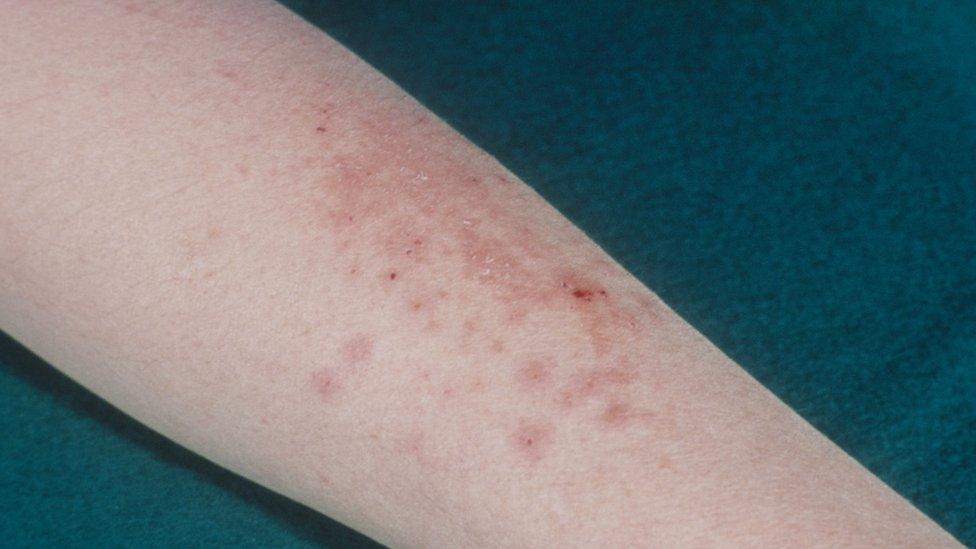
Eczema often affects the arms, elbows, knees, face and head in children
It is National Eczema Week - a chance for people to find out more about eczema and how it affects people.
This common condition causes skin to become itchy, dry, cracked and sore, and affects around one in five children in the UK.
For some people it can be a small irritation, but for others eczema can have a big impact on their life.
Eczema flare-ups can be caused by a wide range of things, including heat, soap, skin products and even illnesses like colds.
Coronavirus: Tips if your hands are dry and itchy after washing them
Some people with eczema only have small patches of dry skin, but others may get it all over the body.
In children, it most often affects the hands, insides of the elbows, backs of the knees and the face and scalp.
The coronavirus pandemic has made it particularly difficult for some people with eczema because of soaps and frequent hand washing, as well as facemasks rubbing against the skin.
Not all of the causes of eczema are known, but it can run in families, and often develops alongside other conditions like asthma and hay fever.
WATCH: Meet the people trying to make health care more diverse
A recent study by the National Eczema Society showed that four out of five children with eczema have trouble sleeping, as their skin is so itchy and sore.
This can leave children feeling tired, meaning over a third of children with eczema struggle to do their best in school.
Andrew Proctor, head of the National Eczema Society, says: "It can be really difficult living with eczema, dealing with inflamed, itchy and painful skin."
"Sharing how you're feeling, with someone you trust, will immediately make you feel a bit better and remind you that you don't have to battle eczema on your own. It's important to get the right treatments too." He added.
- Published25 August 2020
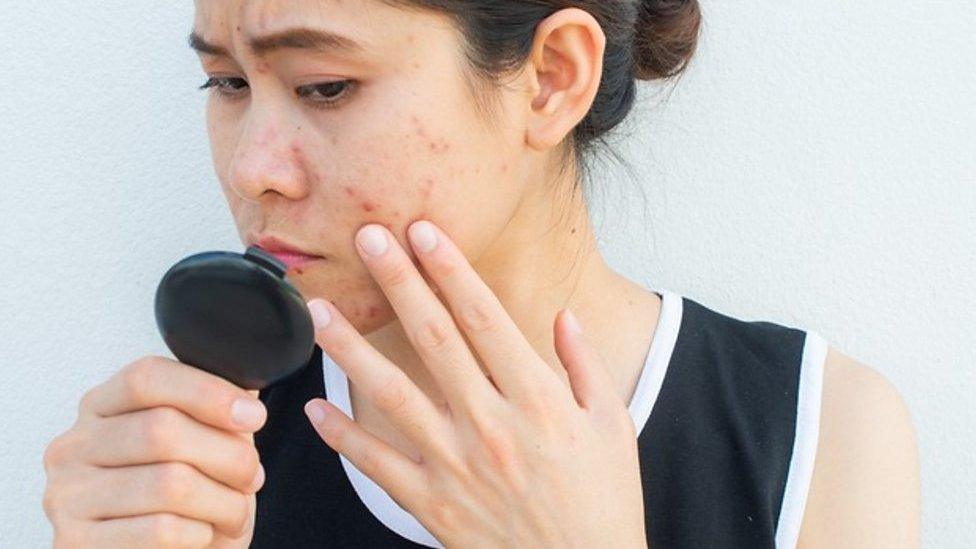
- Published3 August 2020
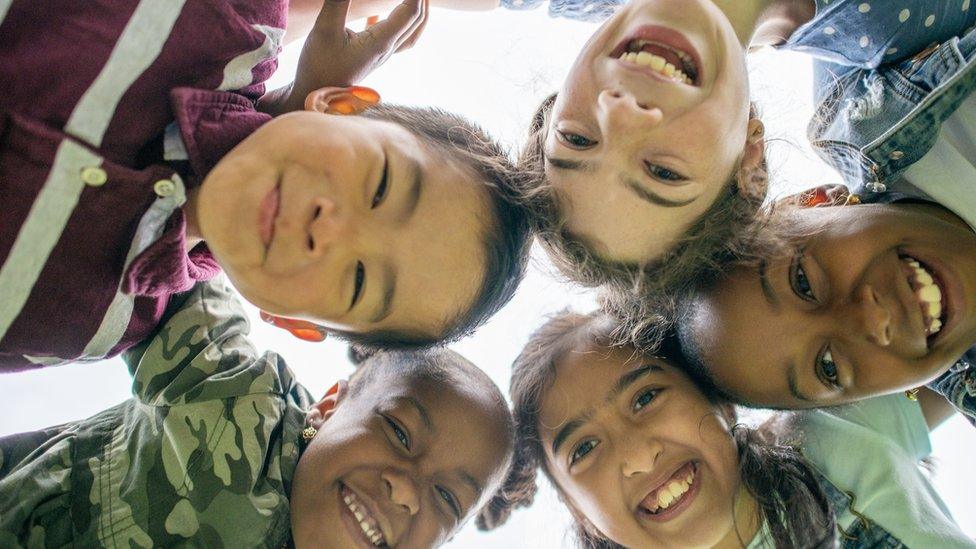
- Published13 August 2020
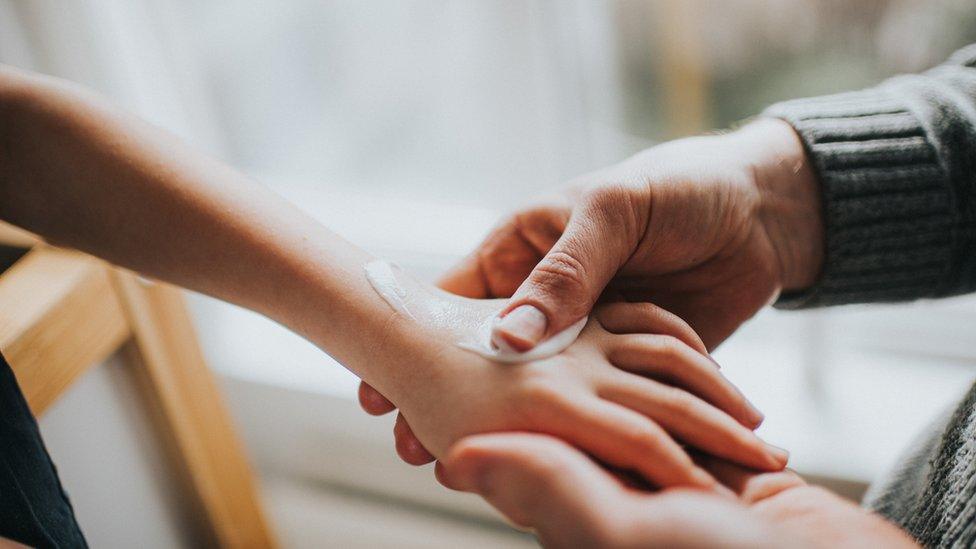
- Published13 August 2020
